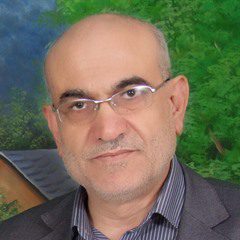The party we witnessed when the nuclear agreement with Iran was signed did not hide the sacrifices and concessions that would be made as a result. These concessions were presented to Iran years ago and it rejected them, which forced Tehran and the Iranian people to suffer many years of harsh international sanctions.
Saying that the nuclear programme was a peaceful project is nonsense; Iran is not poor enough in energy to the extent that it would pay such a high price — the sanctions were crippling — to develop a “peaceful” energy source. Even if the claim were true, why did Tehran refuse to allow international inspections and investigations?
The dream of having nuclear weapons has dominated Iran’s rulers, but what pushed them to change their position is the price that they are paying for their involvement in Syria; they are no longer able to cope with sanctions as well as the war in Syria. Hence, they sacrificed their nuclear plans in order to preserve the regime they believe is essential for Iran’s expansionism in the region.
Today, Iran’s Supreme Leader, Ali Khamenei, is facing the bitter truth; what he paid is not enough. The US Congress is approving the extension of the sanctions on Iran for 10 more years, and Obama will be forced to pass the bill. If the situation is already like this and Trump’s hawks still haven’t started their term of office — they are likely to be even more pro-Israel than Obama’s team — what will happen under the new administration?
America does not want to cancel the nuclear agreement, and neither does Israel, but they want to exploit Iran on two main fronts. The first is related to its long-range missiles and the second is Iran’s relationship with Israel, which is being discussed under the cloud of its alleged support for terrorism. “Terrorism” in this context refers to Iranian backing for Lebanon’s Hezbollah, and Hamas and Islamic Jihad in Palestine.
I am suggesting all of this, but we do not even know what the secret appendices of the agreement are, which Trump promised to expose once his term starts. Nor do we know whether or not it has anything related to the regional situation.
All of the bravado discourse we have heard so far with regards to the Congress decision — and which we will hear much more of in the upcoming phase — will not change much. Talking about restoring uranium enrichment to its old level is nothing more than a threat, as Iran today will not be able to withstand sanctions once again, due to the burden of being involved in Syria, Iraq and Yemen. In fact, Iran has only just started to breathe again after the partial lifting of the sanctions; those who approved the Congress decision definitely know Tehran’s weak points.
There is no doubt that what the Americans are doing is pure aggression and hostility. Iran actually adhered to the clauses of the agreement, but who said that the arrogant US and Western forces would actually adhere to their promises? Why wouldn’t they exploit the situation even more if they have the chance to do so, when America itself decided to promote the bloodshed in Syria by depriving the opposition of qualitative weaponry? The US is happy about Iran and Russia exhausting themselves in Syria, and it knows that a military resolution is impossible, even if they enter Aleppo and all of the other cities thereafter. Territorial control is not a condition or requirement for the continuation of the revolution as long as it finds a fair cause, popular support and foreign arms suppliers.
We can now talk about the curse of Syrian blood. I have said from the very beginning of Iran’s involvement that history will show that the worst decision made by Tehran since the Islamic Revolution was the decision to support Bashar Al-Assad against his people and abort the Arab Spring, which promised equality for every citizen.
The arrogance of power and expansion is what pushed Khamenei towards this situation, just as it pushed George W Bush into the Iraqi quagmire. It is also what is pushing Putin to act in Syria and elsewhere. The arrogance of power is very dangerous and costly, more often than not, for the aggressors and their victims.
The views expressed in this article belong to the author and do not necessarily reflect the editorial policy of Middle East Monitor.


![Foreign Ministers and other officials of P5 +1 meet with Iranian delegates to Iran's nuclear programme on 30th March 2015
[US Department of State/Wikipedia]](https://i0.wp.com/www.middleeastmonitor.com/wp-content/uploads/2016/12/Negotiations_about_Iranian_Nuclear_Program_-_Foreign_Ministers_and_other_Officials_of_P51_Iran_and_EU_in_Lausanne-e1489835492761.jpg?fit=1200%2C799&ssl=1)









